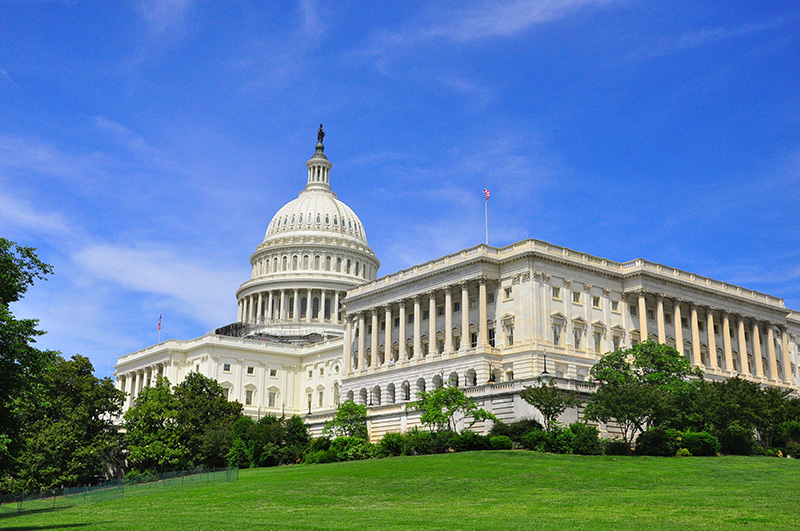
A bill from Minnesota Rep. Ilhan Omar provides federal funding to help local municipalities invest in electronics reuse and recycling. | Supachai Pakdeesrisakda/Shutterstock
Legislation introduced last week establishes federal grants to boost electronics recycling and reuse.
U.S. Rep. Ilhan Omar, D-Minn., on July 25 introduced the Zero Waste Act, which creates federal grants to support municipalities in recycling and waste reduction efforts. The program would be carried out by the U.S. EPA and would be funded with up to $250 million from 2020 through 2027, according to the bill text.
The bill text indicates investments would focus on several key initiatives, including electronics reuse and recycling.
E-scrap-related projects could include efforts to advance “infrastructure and technology, research and development, and product refurbishment,” according to the bill text. Eligible projects would have to be carried out by organizations that are certified to e-Stewards, R2 or RIOS. Any projects that include an electronics “buy-back” program providing credit toward the purchase of new electronics would be excluded from eligibility for federal funding.
Shortly after the bill announcement, Omar hosted a discussion with the Global Alliance for Incinerator Alternatives (GAIA), which supports the bill. She explained there are municipalities already advancing zero waste initiatives, including the city of Minneapolis, which is supporting the bill.
“But it seems like there is a problem sometimes in making it economically feasible to do so,” Omar said. “And so what our bill really does address is to make sure funds are available, so that communities that are doing the work, or communities that are interested in starting the work, have the resources that they need to be able to implement their initiatives.”
Providing financial assistance is key, Omar said, particularly when working to bring about a change as major as a shift towards zero waste.
“Oftentimes we can propose lofty ideas, and if we’re not giving people the actual tools and the resources to implement them, then that just remains a lofty idea,” she said.
A version of this story appeared in Resource Recycling on July 25.
More stories about regulation/oversight
- CA starts OEM requirements for battery-containing devices
- Wisconsin E-Cycle report reflects increasing access
- Illegal e-scrap imports blocked in Malaysia, Thailand



